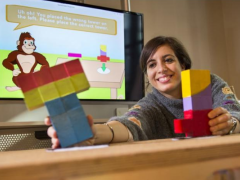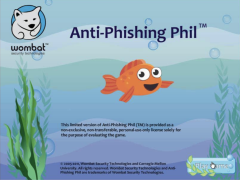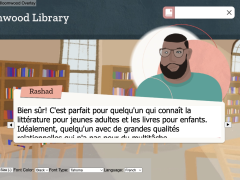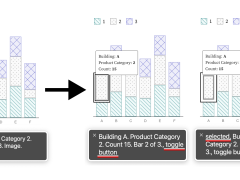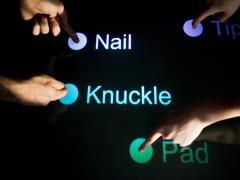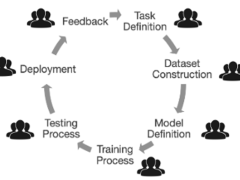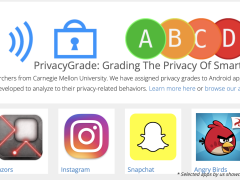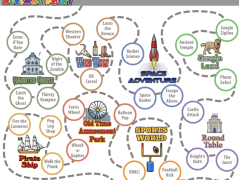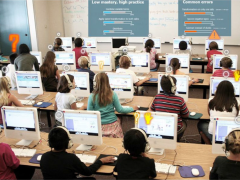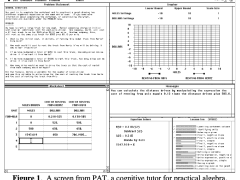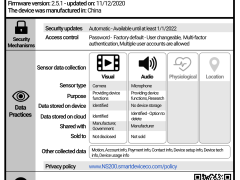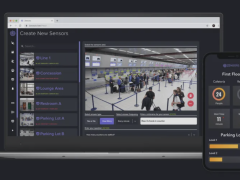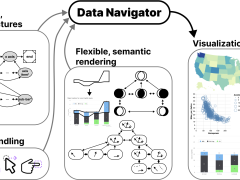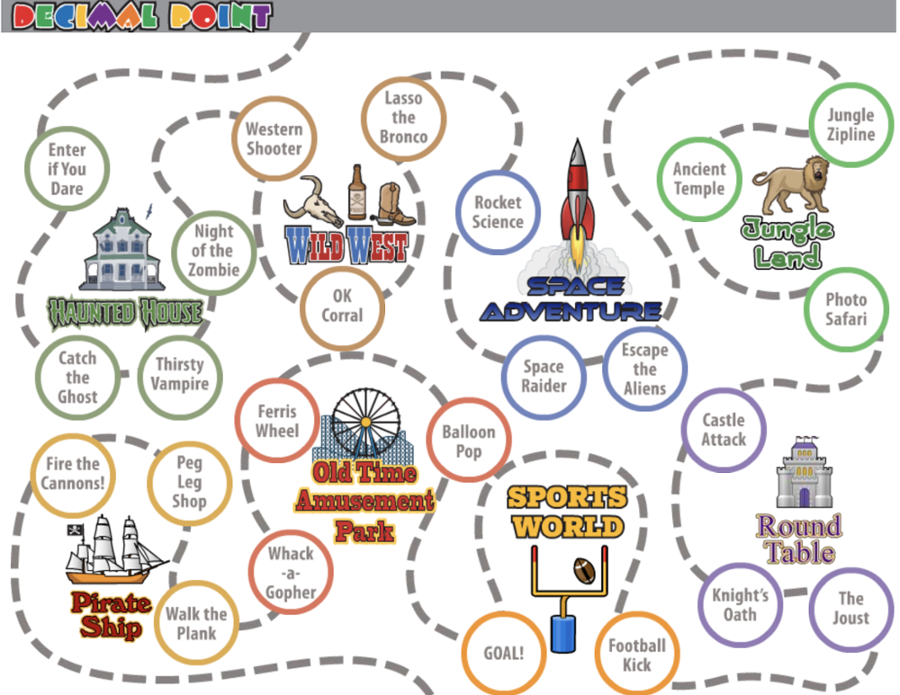Improved Math Mastery with the Decimal Point Game
Impact: Over 1,500 middle schoolers have learned from our educational games
We have run many studies with the Decimal Point game, applying various Learning Science principles to improve its effectiveness. Over the past 10 years, over 1,500 students have benefited from the Decimal Point learning game and curriculum materials.
We designed and developed the digital learning game Decimal Point to improve middle school students' mastery of math.
This work led to...
- Improved mastery of decimals. Student test scores indicate that participants who learned with the game significantly improved their understanding of decimals and decimal operations.
- New research on using erroneous examples for learning. The game introduced erroneous example problems – meaning at least one aspect of the decimal problem is incorrect – and this style of prompting students to identify and fix the error(s) led to significant learning benefits.
- Another learning game, Angle Jungle. This work expanded to see if the design principles that work on Decimal Point can be transferred to Angle Jungle, a game that teaches geometric principles.
- New work on gender and learning. Decimal Point is a gender neutral game but post tests showed that girls’ scores increased more than boys’ scores. We are now exploring the effectiveness of design principles and gender-based learning differences.
Supported by:
- National Science Foundation (NSF), EHR Core Research (ECR). PIs: Bruce M. McLaren, Jessica Hammer (Carnegie Mellon University), J. Elizabeth Richey, (University of Pittsburgh), Ryan Baker (University of Pennsylvania), Nicole Else-Quest (University of North Carolina), Jon Star (Harvard University), “Collaborative Research: Investigating Gender Differences in Digital Learning Games with Educational Data Mining,” (CMU Portion: $1,050,243) Period: 07/01/22 to 06/30/25.
- National Science Foundation (NSF), EHR Core Research (ECR). PIs: Bruce M. McLaren, Ryan Baker (University of Pennsylvania), Jon Star (Harvard University), “Collaborative Research: Using Educational Data Mining Techniques to Uncover How and Why Students Learn from Erroneous Examples,” (CMU Portion: $914,042) Period: 06/01/17 to 12/31/22. (See the NSF Award Announcement; Read the CMU HCII article about this grant)
- National Science Foundation (NSF), Transforming STEM Learning (TSL), Award No: DRL-1238619. PI: Bruce M. McLaren, Co-PI: Jodi Forlizzi, “Enhancing Mathematics Education with Educational Games: Can Erroneous Examples Help?” ($510,518). Period: 10/01/12 to 03/31/15. (See the NSF Award Announcement)
Timing: This work has been going on for over a decade.
Related work:
- "Discerning the Influence of Gender in the Effectiveness of Learning Games"
- "McLaren Receives NSF Grant to Data Mine Learning from Erroneous Examples"
- The McLearn Lab website
Researchers: Bruce M. McLaren, Jessica Hammer, Jodi Forlizzi
Research Areas: Learning Sciences and Educational Technologies, Games & Play
Looking at Additional HCII Impacts...
NoRILLA Interactive Mixed-Reality Science for Kids
Our novel, mixed-reality intelligent science stations bridge the physical and virtual worlds. Millions of children and families across the US are learning more science and improving their critical thinking skills after predicting, observing and explaining experiments with our patented system at their schools and museums.
Protecting Millions of People from Phishing Scams
We studied the social aspects of phishing attacks and protected millions of people through education and training. This work led to new educational methods to raise awareness, effective anti-phishing warnings, and algorithmic detection of phishing attacks.
Tiramisu Supported Public Transit Riders and Research
Years before the public transit buses in Pittsburgh had GPS location trackers, we were exploring how riders could be the co-creators of mobile transit info. During this 10 year research project, this app made it easier for travelers with disabilities to engage in opportunistic travel and benefited 75,000 unique transit riders.
Developing Novel Interfaces for Livestreamed Gaming
Livestream gaming viewers are limited in the ways they can participate, but this team found that designing a better experience for livestreams has a variety of benefits for audiences worldwide.
Creating Accessible Visualizations with Chartability
The Chartabilty framework has empowered people around the world to recognize the parts of a data visualization that produce barriers for people with disabilities. It has contributed to dozens of design languages, visualization guides, accessibility curriculum at universities, and the data journalism seen on news websites.
TapSense Improved Touch Detection on Millions of Smartphones
We trained smartphones to reliably detect four different touchscreen inputs – for example, a tap by a finger pad as compared to a knuckle – which created opportunities for new interactions and features.
Supporting Developers So They Can Build More Responsible AI
We conducted the first studies with industry practitioners to understand the challenges they face when building responsible AI systems. Our tools and methods are now supporting developers around the world.
Grading Your Smartphone Apps on Their Privacy Practices
We created a model that analyzed over 1 million smartphone apps on their privacy and data collection practices, and then assigned them a public-facing privacy grade. This easy-to-follow grading system raised public awareness and led to improved privacy practices from several app developers.
Improved Math Mastery with the Decimal Point Game
We explored the learning analytics behind our digital learning game to see how student learning responds to curriculum changes to the game. Over the past 10 years, over 1,500 students have benefited from the Decimal Point game and curriculum materials.
Understanding the Impacts of AI in Child Welfare
We conducted the first field studies to understand how child welfare workers incorporate AI-based recommendations into their decision-making, which had far-reaching policy impacts.
Designing Teacher-AI Collaboration Systems
Hundreds of elementary and middle school students across the US have learned more as a result of our work on real-time, teacher-AI collaboration systems in K-12 classrooms.
Millions Learned More Math with Our AI Tutor
Millions of middle school and high school students across the US have learned more math as a result of our decades of work with AI-based cognitive tutoring systems.
Human-Centered Privacy for the Internet of Things
As more gadgets become “smart” things and the Internet of Things (IoT) expands to tens of billions of connected devices, we want consumers to be aware of what their devices are doing with their personal data.
Zensors Turns Cameras Into Smart Sensors
In one application installed at the Pittsburgh International Airport in 2019, Zensors use existing cameras as powerful general-purpose sensors to provide wait time estimates for the security line, which benefits almost 10M PIT travelers per year.
Accessible Visualization Tooling with Data Navigator
A visual labeled as “an image of a bar chart” or that requires a mouse hover to display important info does not support all users. We created the Data Navigator system to give developers a flexible foundation for designing and building more inclusive data experiences.


